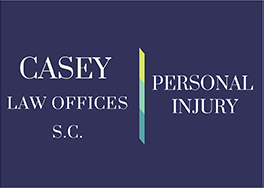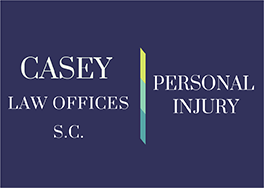Learn About Rideshare Accident Statistics and Your Ability to Sue if You Experience One
When we talk about rideshares, we are referring to the most modern form of taxis. You know these companies better by the names of Uber and Lyft. Uber drivers must undergo background checks that screen potential Uber drivers’ records within the past seven years. Furthermore, driver candidates cannot have a conviction for a felony, violent crime, or sexual offenses, and they cannot be registered on the US Department of Justice National Sex Offender public website.
When it comes to Lyft, their company disqualifies applicants whose driving record reveals four or more driving violations in the past three years or a single major moving violation in the past three years. In addition, Lyft driver applicants must also pass a criminal background check, which is separate from the driving record check.
Because of these restrictions, it is pretty rare for passengers in rideshares to experience accidents, but it does happen. Between 2017 and 2018, Uber vehicles engaged in 97 fatal crashes that led to 107 total deaths. 21% of those crash victims were riders, and 21% of those crash victims were drivers. The remaining 58% of those crash victims were third-party drivers or passengers. Although these crashes are not seen as a common phenomenon, their prevalence is increasing, and it is important to be aware of your legal options if you find yourself in this situation.
Legal Process of a Rideshare Accident
Whether an accident was a rideshare case or not, in every car accident claim, the individual bringing the claim must be able to prove liability and damages. Liability refers to who was at fault in the case, and damages refer to how badly the passenger was injured. These cases are not exactly typical, and they can be a bit more complicated than an average accident case.
If you choose to access the legal support you need through Casey Law Offices, S.C., and you will be in good hands. We will leave no box unchecked when it comes to fighting for your rights in these cases, and the way we will go about this process depends on who caused the accident. There are two main types of cases when it comes to fault, and the way we will go about the process will be different depending on what kind of case yours is. These cases include:
- Rideshare driver caused the accident
If the rideshare driver was at fault for the accident, our best route might be to bring a claim against the driver. If the Uber driver were speeding or driving too fast for the conditions at the time of the accident, they could be at fault. The complicated part about these cases is that it might not be possible to collect damages from the driver’s personal auto insurance policy. These policies do not apply when the driver is engaged in a commercial operation, including carrying passengers for a fee.
Fortunately, both Uber and Lyft carry auto liability coverage for injuries to rideshare passengers caused by the driver. If the Uber driver was at fault for the accident, it would be more difficult for the company to deny a settlement amount. These companies maintain coverage of up to $1 million per accident. Therefore, if your driver disregards a stop sign of traffic light and causes a collision, Casey Law Offices, S.C. will make a claim against Uber or Lyft’s insurance coverage. After you have accepted a trip, the rideshare company maintains uninsured or underinsured motorist bodily injury coverage on your behalf. This protection can apply to cover bodily injuries when another individual is at fault and does not have enough insurance. This does not mean that they will hand over the money without a debate, however. It will still help to have a team of lawyers on your side to hold them accountable.
- The Rideshare driver was not at fault for the accident
If the rideshare driver were not at fault for the accident, we would go about the situation in a slightly different manner. In this situation, we might bring a claim against the driver of the other vehicle. All drivers in Wisconsin are required to have an automobile insurance policy in force. If they have an insurance policy, it will make the case a bit smoother because we will be able to go through their insurance to cover the damage. However, that does not mean all Wisconsin drivers follow this rule. It is estimated that one in eight drivers in Wisconsin does not carry car insurance. This is when the case might become a bit more complex. If the at-fault party does not have car insurance, we can file an uninsured motorist claim with your auto insurance company. For this reason, it is essential to exchange contact information with those involved in the accident, and you might want to take a picture of their license plate and the scene. This information will help us later as we file a lawsuit and make sure you receive the damages you are owed.
How Much Money Can You Get from a Rideshare Accident?
If you get into a car accident in a rideshare, it is possible to get compensation from a company, like Uber or Lyft. Your odds of receiving compensation increase if you are working with a team of skilled car accident lawyers at Casey Law Offices, S.C. because we will make sure the facts of your case are presented in the most favorable light possible.
The rideshare company can typically pay between $10,000 and $1,000,000, and all cases are weighed individually. The amount of compensation will change depending on the severity of the accident and the injuries incurred.
If you have been in a rideshare accident or any other type of accident and would like to consult with a personal injury attorney, call Casey Law Offices, S.C. at (414) 272-5564 or contact us online.


